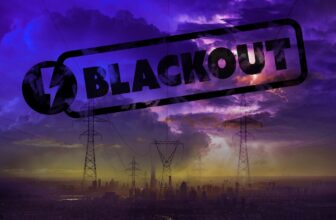
Consider a world without electricity. Will it be possible to light your home, get to your workplace, prepare food, and communicate with family and friends? The answer is no, especially if you reside in a big city. With more computerized gadgets than ever before, digitalization is transforming our way of life, amplifying the effects of power outages. Today, most big cities are not well-equipped to handle power disruptions.
Reasons
There are several causes of electricity shortages. Natural disasters like storms, a lot of snow, and fallen trees can knock down power lines. Extreme heat can potentially damage electrical wires. The human factor may also contribute to power shortages. In the worst-case scenarios, power plants may be subjected to an accident by fire or war actions. Climate change is also raising the possibility of power disruptions. These shortages cause significant issues with survival, daily living, employment, transportation, warmth, food, and medical care.
Significances
The majority of city dwellers depend substantially on power for everyday needs. We need the energy to power the turbines that deliver water to homes and condominiums. This implies that in the case of the absence of electricity, the water would stop flowing in these structures. Energy is also required for refrigeration and freezing, as well as heating systems. Lighting, air conditioning systems, and other regularly used items would stop operating in the event of a power loss.
Our society depends on energy for several critical operations. Food shops are one instance. The most pressing issues for stores of any size experiencing power shortages are connected to the refrigeration and heating of food goods and the increasingly computerized checkout operations. In case of prolonged electricity absence, issues will arise with ordering and storage, as well. Power is also necessary for health facilities. Surgery risks increase, breathing masks stop working, and cleanliness is jeopardized when there is no electricity.
Power plants that generate electricity and heating, sewage treatment facilities, and industrial plants, confront various difficulties when the power is off. Production setbacks can have a significant financial impact and endanger security. and also can pose an immediate hazard to environmental safety.
Power disruptions would also have an impact on the infrastructure.
How to prepare?
Renewable sources
You will need to discover alternative means of energy suppliers if you intend to live without electricity. Using renewable energy sources is a great method to do this. You can use wind generators, hydroelectric power systems, or photovoltaic systems. You may also think about setting up a backup generator so you can run your electric appliances. Renewable resources like biodiesel should also be taken into account.
Light
Let’s dwell on some practical choices for lighting your home effectively. Kerosene lanterns are among the finest. Candles and battery-operated camping lights are other options. Additionally, it’s crucial to have torches and flashlights on hand in case of a sudden blackout.
Heating
You should think about installing a fireplace or wood-burning stove if you don’t already have one. You may think about adding ducts to your fireplace to heat all areas of your house.
Food preparation and preservation without electricity
Installing a wood-burning stove is one of the finest methods to cook without any power. You can also utilize a gas camping stove. No electricity is needed for this. Simply ignite the burners, and it is ready for preparing food.
Preserved food is an important component of surviving without power. Almost everything may be preserved, including meat, fish, and fruits or vegetables. Canning is a great method for keeping products. Also, consider having a stash of dried food.
Steps for dealing with a power outage
- Make an emergency kit.
- Put together a first aid kit.
- Store water somewhere in your house.
- Store non-perishable food.
- Stock up on firewood
There are further crucial actions you may take. Purchase some alternate lighting. Several torches, lanterns, or candles are examples of these.
Prepare warm clothes and some cash in case ATMs do not operate. Remember, you can charge all electronics in your car.
Conclusion
The majority of people aren’t prepared for life without power and what it’s like to go without necessities like a working washing machine or clean water that is running from your tap.
We take the electric power we have for granted since it is a constant force in our daily lives, and we utilize it without giving it a second thought. We have to give attention, though, to the prospect of natural calamities approaching and major volcanic eruptions becoming closer or sudden war actions.




